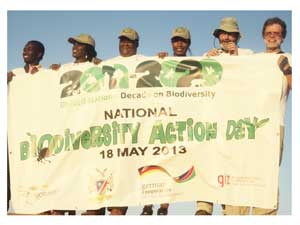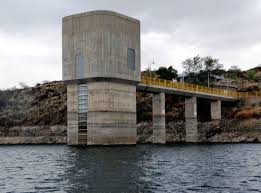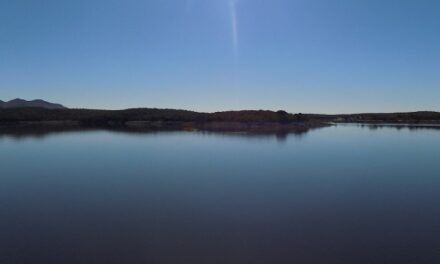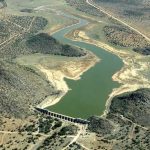
Biodiversity in action

Enthusiastic participants of the National Biodiversity Action Day seen here on top of a dune with the official banner. (Photograph by Hilma Hashange)
The Biodiversity Action Day celebration is a worldwide initiative developed by GEO Magazine in cooperation with the German Federal Ministry for Economic Cooperation and Development (BMZ) and the Deutsche Gesellschaft fuer Internationale Zusammenarbeit (GIZ). This year the event has been organized by the Ministry of Environment and Tourism, through its Department of Environmental Affairs and in collaboration with the Gobabeb Research and Training Centre.
According to the Executive Director at the Gobabeb Research and Training Centre, Dr. Gillian Maggs-Kölling, the importance of celebrating Biodiversity Action Day lies in the fact that about 70% of the population directly depends on natural resources for income, food, health, fuel and shelter. She said the basis of the Namibian economy is formed by natural resource sectors such as mining, fishing, agriculture and tourism; hence it is important for the country to participate in the global initiative of celebrating the conservation of biodiversity.
The celebration of biodiversity aims to make people aware of the importance of the ecosystems and aims to promote the conservation of biodiversity on a local and global level. However, according to the Minister of Environment and Tourism, Hon. Herunga Uahekua, the environment today has started turning into an enemy that connives with natural hazards to reciprocate the kind of treatment that humans give it.
He said poor farming practices, illegal and excessive mining and deforestation among many other abuses, have contributed to the degradation of the environment. “These dangers that we bring upon nature ultimately affect us too. When disasters strike, our ailing environment will have no power to defend itself and would even intensify the risks in our communities,” Herunga noted.
The minister said the country is blessed with internationally recognized biodiversity hotspots which are unfortunately situated in areas rich of mineral resources. “It is against this background that we should be mindful that if no proper balance is found between development and environmental biodiversity management, our people’s livelihoods are compromised,” he said.
Currently, Namibia is faced with the challenge of climate change. Among the projected impacts of climate change is the loss of thousands of species as well as changes in natural ecosystems. Herunga stated that the rise in average global temperatures will render many species unable to adapt quickly enough to these new conditions or to move to regions more suitable for their survival. For the winter-rainfall region of Namibia, the frequency of drought is predicted to increase over the next 100 years, with dire consequences for the vegetation of this biodiversity hotspot,” said the minister.
Herunga urged all stakeholders to address the more imminent issue, that of existing local and regional non-climate stresses facing the ecosystem which he said is easier to manage than climate change.
















































